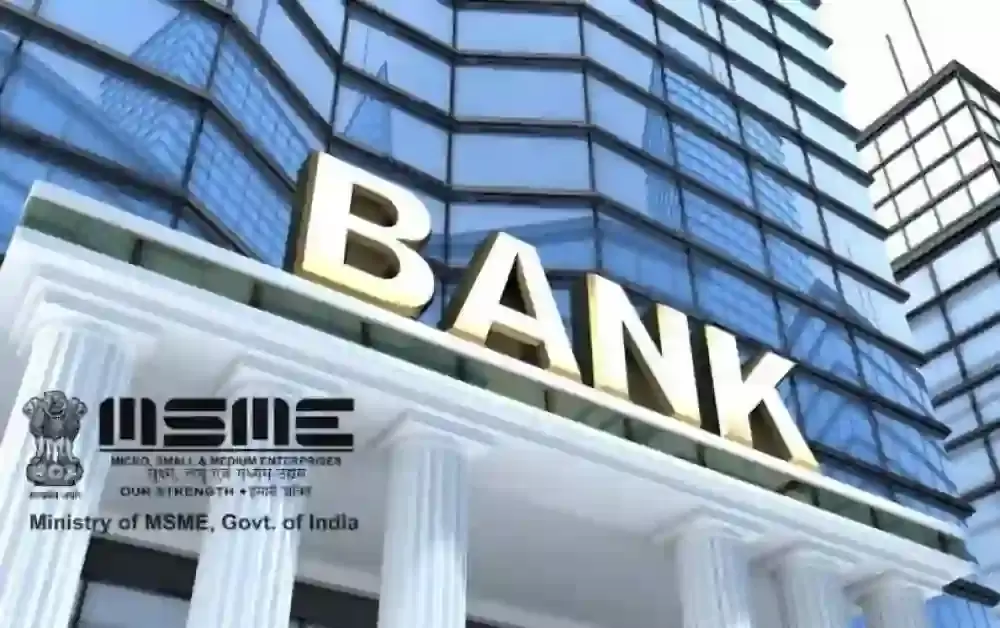Banks Fear That More Than 15% of 3 Lakh Crore MSME Loans Will Turn Bad
- June 02, 2020
- Registrationwala

- Home
- /
- Knowledge Base
- /
- Business Registrations
- /
- MSME
- /
- Banks Fear That More Than 15% of 3 Lakh Crore MSME Loans Will Turn Bad
Banks Fear That More Than 15% of 3 Lakh Crore MSME Loans Will Turn Bad
The Modi government believes that only 15% of 3 Lakh Crore loans announced under the special credit line will turn bad. However, the banks are apprehensive about it and they have a very good reason to.
Recently, we all had to pause our Mahabharata episode for about 33 minutes when the Prime minister rambled for 30 minutes and announced the 20 Lakh Crore Stimulus Package in the last 3 minutes. As time went on and our finance minister slowly lifted the veil from this mysterious stimulus, we are not seeing more cracks than ever.
What is the special credit line scheme?
As per the scheme, the government will give MSMEs collateral free loan and at the same time, provide 100% guarantee to the banks and the NBFCs providing these loans. Firms with outstanding loans of more than INR 20 Crore and with annual turnover of INR 100 Crore are eligible to take these loans.
As per the finance ministry, even if a business entity isn’t registered as an MSME, it will be able to enjoy the benefits of this scheme provided that it complies with the above given conditions.
What is the finance ministry expecting?
Quoting a source that didn’t wished to be named, “Not only MSMEs, but the firms of hospitality”, travel and tourism and other services can avail this credit facility. Our initial estimation is that only 15% of these loans will go bad and it only depends on the time taken for the businesses to be revived.”
In a country with over 63 million MSMEs, this talk seems a bit far-fetched – at least if we hear what the banks are saying.
Working of the Scheme
Before we jump into the nitty-gritty of what the banks are saying, let us look into how this scheme going to work.
Before diving into the details of the banks' perspectives, let’s understand how this scheme operates.
Who will provide the guarantee?
The loan guarantee will be provided by the National Credit Guarantee Trustee Company (NCGTC). This government-backed entity was recently established to manage and implement credit guarantee programs.
What will be the tenor of these loans?
These loans will have a tenor of 4 years, offering borrowers a reasonable timeframe for repayment.
What is the interest rate on these loans?
The interest rate on these loans will be competitive and fixed as per government guidelines, ensuring affordable access to credit for eligible applicants.
All the interest rates of these loans are capped at 9.25 percent. Furthermore, the borrowers are free to not pay the principal amount of these loans for 1 year.
The last line of the last question above is the reason that the government is expecting merely 15 percent of bad loans. To manage NCGTC in this regard, the government has provided it a hefty capital to underwrite the guarantees. While this will work for another year, more capital will be required for what comes after.
What are the bankers saying?
Bankers are of the opinion that there is a chance that more and more loans could turn bad if the economic recovery takes longer than anticipated. The questions that they have put have made us question a lot about India’s economic future:
- How long will the lockdown last?
- How long will it take to revive the economic activity?
- When will labours come back from their villages?
The above three questions pose a great uncertainty in the future of MSMEs most of whom are dependent on labours and working on-site. Therefore, the bad debts could be far more than the government’s anticipation of merely 15%.
Conclusion
So, the crux of this situation is, we don’t know what’s going to happen. While the incentive is clearly “thought out” and won’t have any “negative repercussion”, it’s safe to say that considering how many people have lost their jobs and left cities recently, it’s going to really hard for some of the MSMEs to survive.
People also read: Benefits of Udyam Registration Certificate
- 3545 views
